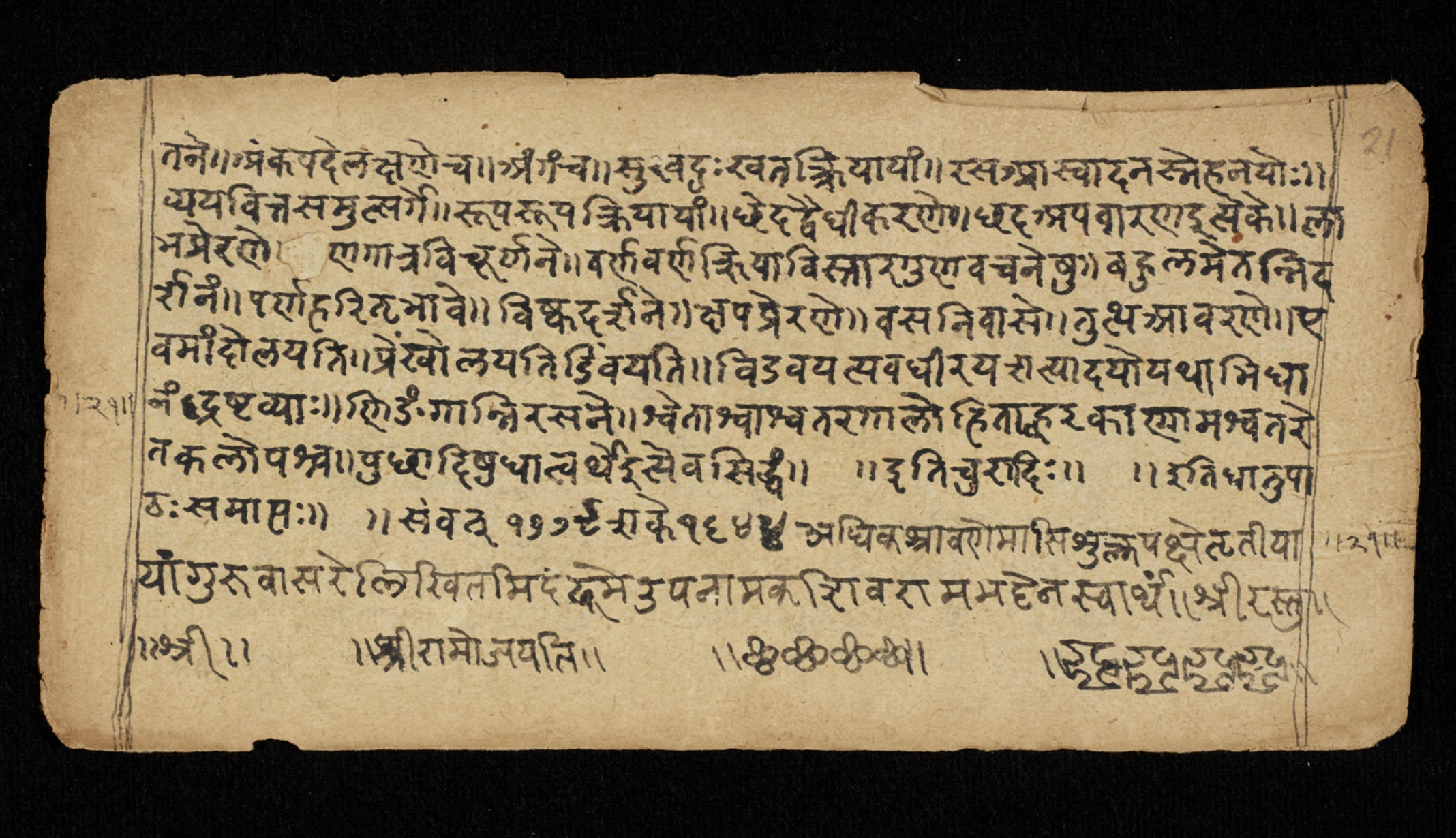Fixing a 2,500-Yr-Previous Puzzle: How a Cambridge Pupil Cracked an Historical Sanskrit Code


Should you discover yourself grappling with an intellectual problem that’s gone unsolved for millennia, strive taking a number of months off and spending them on activities like swimming and meditating. That very strategy labored for a Cambridge PhD student named Rishi Rajpopat, who, after a summer of non-research-related activities, returned to a textual content by the traditional grammarian, logician, and “father of linguistics” Pāṇini and located it newly comprehensible. The foundations of its composition had stumped scholars for two,500 years, however, as Rajpopat tells it in an article by Tom Almeroth-Williams at Cambridge’s netwebsite, “Within minutes, as I turned the pages, these patterns begined emerging, and all of it begined to make sense.”
Pāṇini composed his texts utilizing a form of algorithm: “Feed within the base and sufrepair of a phrase and it ought to flip them into grammatically correct phrases and sentences by a step-by-step course of,” writes Almeroth-Williams. However “usually, two or extra of Pāṇini’s guidelines are simultaneously applicable on the similar step, leaving scholars to in the pastnize over which one to decide on.” Or such was the case, at the very least, earlier than Rajpopat’s discovery that the difficult-to-interpret “metarule” meant to use to such cases dictates that “between guidelines applicable to the left and proper sides of a phrase respectively, Pāṇini needed us to decide on the rule applicable to the appropriate facet.”
That is probably not immediately beneathstandin a position to these unfamiliar with the structure of Sanskrit. Almeroth-Williams’ piece clarifies with an examinationple utilizing mantra, one phrase from the language that eachphysique is aware of. “Within the sentence ‘devāḥ prasannāḥ mantraiḥ’ (‘The Gods [devāḥ] are happy [prasannāḥ] by the mantras [mantraiḥ]’) we encounter ‘rule conflict’ when deriving mantraiḥ, ‘by the mantras,’ ” he writes. ” The derivation begins with ‘mantra + bhis.’ One rule is applicable to the left half ‘mantra’ and the other to proper half ‘bhis.’ We should choose the rule applicable to the appropriate half ‘bhis,’ which supplies us the correct kind ‘mantraih.’ ”
Applying this rule renders interpretations of Pāṇini’s work nearly completely unambiguous and grammatical. It might even be employed, Rajpopat has noted, to show Sanskrit grammar to computers being professionalgrammed for natural language professionalcessing. It little question took him an excessive amount of intensive examine to succeed in the purpose the place he was in a position to discover the true implying of Pāṇini’s clarifying metarule, but it surely didn’t truly current itself till he let his unconscious thoughts take a crack at it. As we’ve mentioned right here on Open Culture earlier than, there are good reasons we do our greatest assumeing whereas doing issues like strolling or taking a presenter, a phenomenon that philosophers have broadly recognized by the ages — and, like as not, was beneathstood by the nice Pāṇini himself.
Related content:
Introduction to Indian Philosophy: A Free On-line Course
Primarily based in Seoul, Colin Marshall writes and broadcasts on cities, language, and culture. His tasks embody the Substack newsletter Books on Cities and the guide The Statemuch less Metropolis: a Stroll by Twenty first-Century Los Angeles. Follow him on Twitter at @colinmarshall or on Faceguide.

